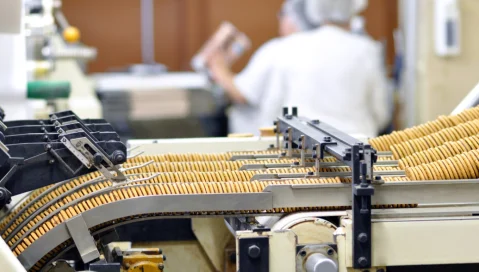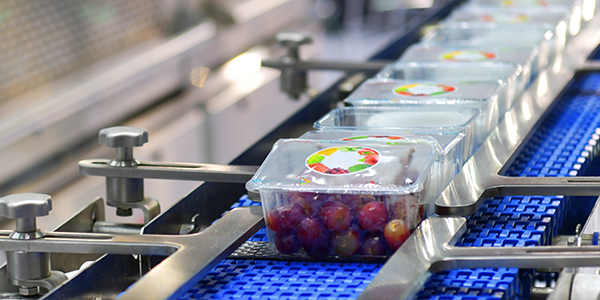Introduction
In today's swiftly advancing food market, services are looking for sustainable solutions to satisfy the growing demand for top quality food products while minimizing their environmental influence. Contract food manufacturing has actually emerged as a sensible alternative for business wanting to outsource their manufacturing needs while maintaining control over item growth and quality control. This post discovers the principle of contract food manufacturing in Australia and its role in promoting sustainability within the food industry.
The Surge of Contract Food Manufacturing in Australia
Understanding Agreement Food Manufacturing
Contract food manufacturing is a calculated collaboration in between a brand owner and an agreement producer, where the latter produces goods in support of the previous. This arrangement enables brand owners to focus on advertising, product advancement, and also circulation while leveraging the expertise as well as resources of specialized agreement manufacturers.

Benefits of Agreement Food Manufacturing
Cost Efficiency: Contract food manufacturing gets rid of the requirement for substantial capital investments in infrastructure, devices, and also workforce. This cost-saving measure enables brand names to designate their sources in the direction of various other important areas of business growth. Scalability: As demand for a particular item rises and fall, agreement suppliers can swiftly adjust production levels to suit market requirements. This adaptability makes certain that brand names can meet customer need without excess inventory or wastage. Expertise and Development: Contract makers commonly possess substantial understanding as well as experience in details food groups or processes. By collaborating with these professionals, brands can tap into their creative thinking as well as harness ingenious services for item growth and also improvement. Quality Assurance: With rigorous quality control measures in position, agreement makers follow industry criteria and also governing requirements. This commitment to quality makes sure that brand names deliver safe as well as top quality items to customers consistently. Supply Chain Administration: Contract food manufacturing enhances the supply chain by consolidating manufacturing, packaging, labeling, and also circulation under one roofing. This incorporated strategy reduces logistical intricacies as well as enhances general functional efficiency.The Environmental Effect of Contract Food Manufacturing
Reducing Carbon Footprint
Contract food production provides possibilities to decrease the ecological influence of food production via various means:
Efficient Source Usage: Contract manufacturers enhance source usage by implementing energy-saving practices, lessening water use, and also lowering waste generation. These sustainable steps contribute to a lower carbon impact throughout the entire production process. Locally Sourced Components: By sourcing ingredients from local suppliers, contract suppliers lower transport distances and also linked exhausts. This method supports local economic climates while advertising sustainability within the supply chain. Eco-Friendly Product packaging: Contract food makers emphasize making use of green packaging materials, such as eco-friendly or recyclable choices. This dedication to lasting product packaging reduces waste as well as promotes responsible consumption.Embracing Eco-friendly Energy
Contract food manufacturing centers in Australia are increasingly adopting renewable energy resources to power their operations. Solar panels, wind generators, as well as various other tidy energy options help in reducing dependence on fossil fuels and contribute to a greener future for the industry.
Addressing Sustainability Difficulties in Contract Food Manufacturing
Waste Administration and Recycling Initiatives
Contract food producers focus on waste administration through extensive recycling programs and waste reduction strategies. By carrying out efficient waste segregation systems, companies can draw away significant amounts of waste from garbage dumps and also advertise a circular economy.
Water Preservation Measures
Water deficiency is a global problem, and also agreement food manufacturers play their part in resolving this obstacle. Business purchase water-saving innovations, such as innovative filtering systems and also water reuse campaigns, to reduce their freshwater consumption.
Collaboration with Sustainable Suppliers
Contract food producers proactively look for collaborations with vendors dedicated to sustainable practices. By prioritizing environmentally conscious distributors, these business make sure that their entire supply chain straightens with sustainability goals.

FAQs
What is contract food manufacturing? Contract food manufacturing refers to the outsourcing of food manufacturing to specialized manufacturers who generate products in behalf of brand owners.
How can contract food manufacturing benefit services? Contract food manufacturing provides price performance, scalability, know-how, and also quality control to brand names wanting to focus on advertising as well as distribution.
How does contract food manufacturing advertise sustainability? By enhancing resource usage, welcoming renewable resource, and also implementing waste administration as well as reusing initiatives, contract food manufacturing decreases its environmental impact.

What are some sustainable product packaging alternatives in contract food manufacturing? Environmentally friendly product packaging products such as eco-friendly or recyclable alternatives are frequently made use of in contract food manufacturing to minimize waste.
How do contract food manufacturers save water? Contract food producers invest in water-saving modern technologies and apply water reuse initiatives to lessen their freshwater consumption.
What function does cooperation with sustainable providers play in contract food manufacturing? By partnering with environmentally conscious distributors, agreement food manufacturers make sure that their whole supply chain straightens with sustainability goals.
Conclusion
Contract food manufacturing presents a sustainable remedy for businesses seeking contract cheese manufacturing to meet the growing demand for quality food products while minimizing their ecological impact. By leveraging the know-how of customized suppliers and taking on environment-friendly methods, brand names can contribute to a greener future for the Australian food sector. Accepting sustainability not only benefits the atmosphere but also boosts brand name reputation and customer trust in an increasingly conscious market.